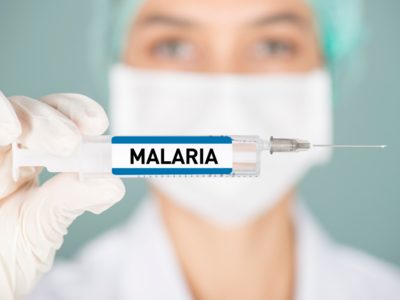A New Hope for Malaria Treatment in Newborns and Young Infants
Malaria remains one of the most significant public health challenges, particularly in regions like Africa. According to recent reports, around 16 malaria-related deaths are recorded daily in Uganda, with 10 of these occurring among children under five years old. This alarming statistic highlights the urgent need for effective interventions, especially for the most vulnerable populations.
In response to this critical issue, a new treatment has been approved to address the specific needs of newborns and young infants. Coartem Baby, also known as Riamet® Baby in some countries, has been recognized as the first appropriate treatment for malaria in this age group. The drug was developed through a collaboration between the Medicines for Malaria Venture (MMV), a Swiss-based not-for-profit organization, and Novartis. This partnership aimed to create an accessible and effective solution for a population that has long been underserved.
The approval of Coartem Baby marks a significant milestone in the fight against malaria. Prior to this development, there were no approved treatments specifically for infants weighing less than 4.5 kilograms. As a result, healthcare providers often relied on formulations intended for older children, which could pose risks such as overdose and toxicity. The new treatment offers an optimized dose tailored to the unique physiological needs of newborns and young infants, ensuring safer and more effective care.
Martin Fitchet, CEO of MMV, emphasized the importance of this breakthrough. He stated, “Malaria is one of the world’s deadliest diseases, particularly among children. But with the right resources and focus, it can be eliminated.” The approval of Coartem Baby represents a crucial step toward achieving this goal by addressing a critical gap in treatment options.
Novartis plans to distribute the infant-friendly treatment on a largely not-for-profit basis, aiming to increase access in areas where malaria is endemic. Vas Narasimhan, CEO of Novartis, highlighted the company’s long-standing commitment to combating malaria. “For more than three decades, we have stayed the course in the fight against malaria, working relentlessly to deliver scientific breakthroughs where they are needed most,” he said.
This development comes after extensive research and trials involving eight African countries, including Burkina Faso, Côte d’Ivoire, Kenya, Malawi, Mozambique, Nigeria, Tanzania, and Uganda. These nations are expected to issue rapid approvals under the Swiss agency’s Marketing Authorisation for Global Health Products procedure. The process aims to ensure that the treatment reaches those who need it most without unnecessary delays.
Experts have noted that previous malaria treatments were primarily tested in children aged six months and older. However, neonates and young infants have different metabolic processes, making standard dosages potentially unsafe. Umberto D’Alessandro, Director of Medical Research Council (MRC) Unit, The Gambia at the London School of Hygiene and Tropical Medicine, explained, “Neonates and young infants have immature liver function and metabolise some medicines differently, so the dose for older children may not be appropriate for small babies.”
Despite the promising developments, officials in the malaria control division have yet to receive detailed information about the drug’s implementation. They are currently awaiting further updates from the relevant authorities.
According to Novartis, approximately 30 million babies are born in areas of malaria risk in Africa each year. In West Africa, surveys have shown infection rates ranging from 3.4 percent to 18.4 percent in infants younger than six months. The availability of Coartem Baby is expected to significantly reduce the burden of malaria in this vulnerable group.
This breakthrough underscores the importance of continued investment in medical research and global health initiatives. With the right strategies and partnerships, it is possible to make substantial progress in the fight against malaria and improve the lives of countless children around the world.







